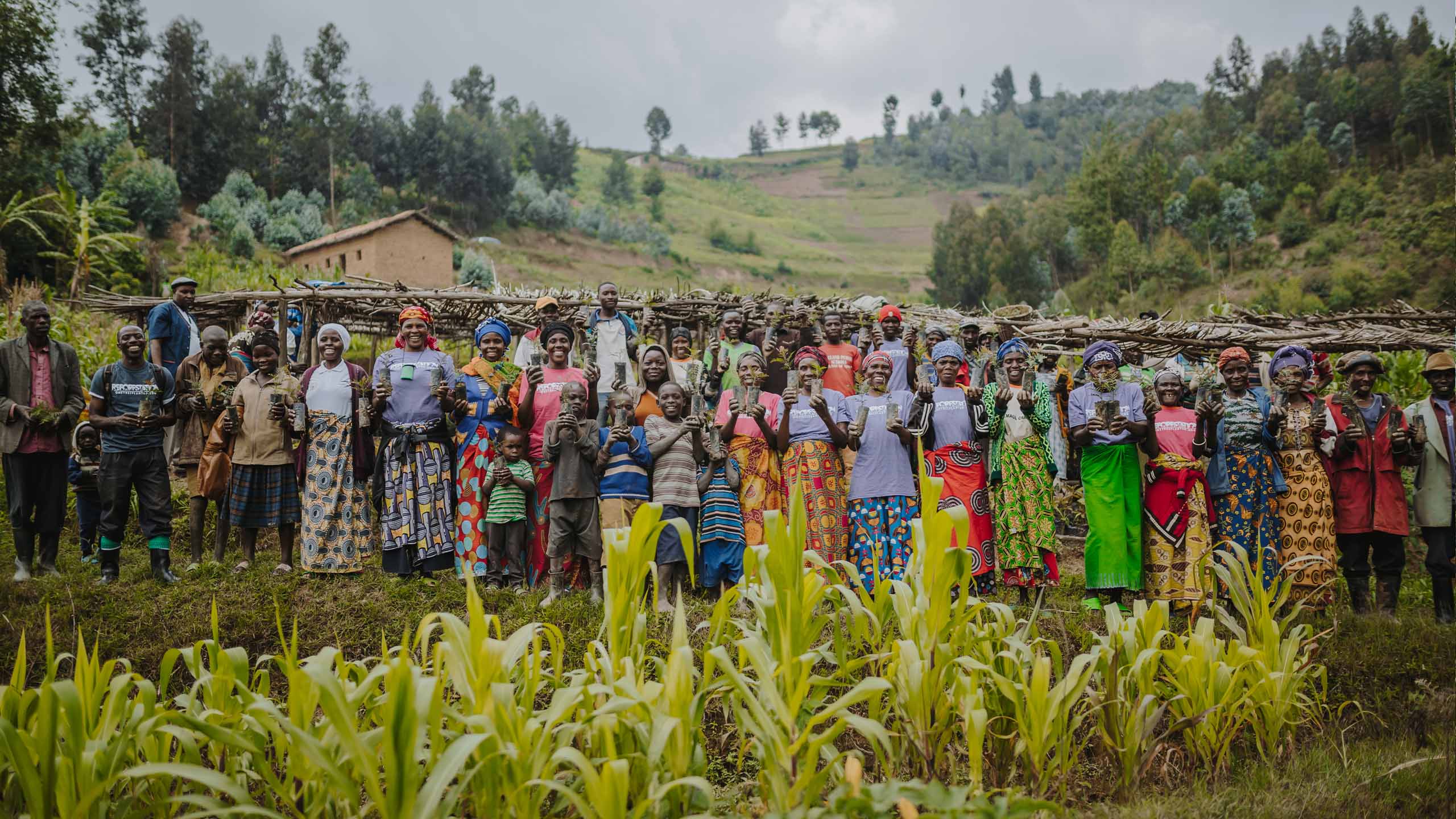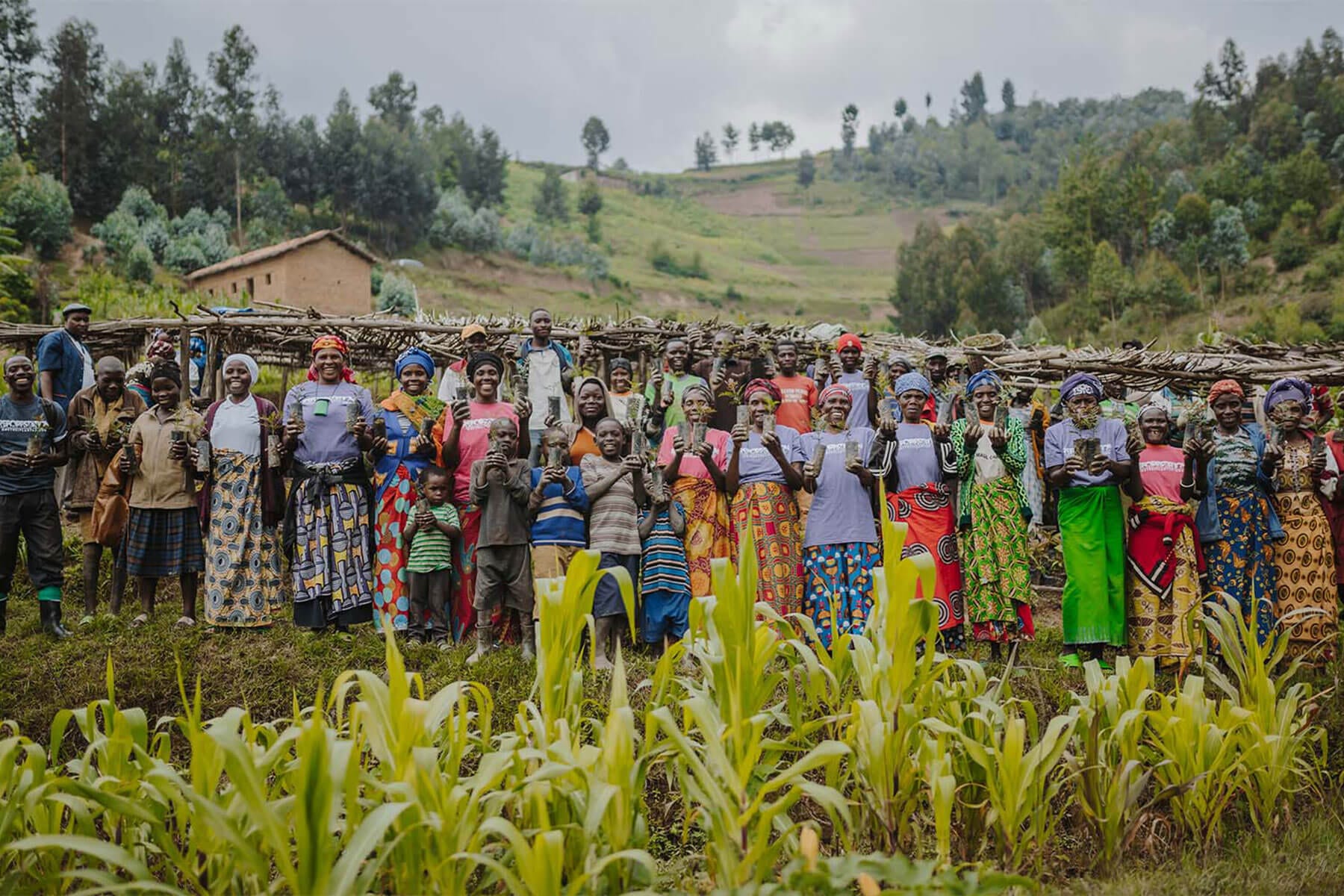Reforestation In
Rwanda
Known as the Land of a Thousand Hills, Rwanda’s landscape is characterized by lush green valleys and hilltops that are dotted with 17,000 hectares of tea plantations. Also found in this small, landlocked country is Lake Kivu, one of the great African lakes — and the largest mountain rainforests in Africa. The country is home to 1,061 bird species, 293 reptile and amphibian species, and 402 mammal species — including chimpanzees and mountain gorillas.
Rwanda's forests and biodiversity are threatened by the country's high population density, reliance on subsistence agriculture, exploitation of natural resources for livelihoods, climate change, and low capacity for biodiversity and ecosystem management. Planting trees across the country can foster opportunities for local communities, promote sustainable agroforestry, and restore critical wildlife habitat.

Rwanda Stats
30.4%
Forested
Forests cover 30.4% of Rwanda’s land area.
How Rwanda is Putting Its Forests First in the Fight Against Climate Change, Ministry of the Environment Rwanda
40%
of mammals
Rwanda houses 40% of all mammals living in Africa.
Biodiversity/Rwanda, Interactive Country Fiches
500+
Chimpanzees
Nyungwe National Park in Rwanda is home to 500+ chimpanzees.
Landscapes of Rwanda, National Geographic
10%
of land
National parks, forests, and wetlands cover 10% of the country’s territory.
Biodiversity/Rwanda, Interactive Country Fiches
75%
Habitat Loss
At least 75% of California’s original habitat has already been lost.
60%
Of Water
60% of potable water in California is sourced from forested watersheds.
Project Highlights
Reforestation in Rwanda focuses on preserving the beautiful tapestry of landscapes that the country is known for, while also positively impacting local communities. Learn about two recent reforestation projects that planted trees in Rwanda.

Kula Coffee and Shade Tree Project
This innovative project is helping coffee farmers improve both their businesses and the land they depend on. Shade trees are utilized to protect coffee trees from drought and overexposure to the sun, maintain soil structure to combat erosion, and replenish soil nutrients. This project also provided training to help farmers care for their land, empowering them to make informed and sustainable decisions that benefit the environment and improve their livelihoods.
Promoting Landscape Restoration in Rwanda
The goal of this project is to restore degraded areas and enhance climate resilience in mountainous areas of western Rwanda, as well as the lowlands of eastern Rwanda. The tree plantings will help restore soil stability and enhance resilience to climate change. Biodiversity and habitat restoration are also a vital part of this project. By ensuring the promotion of healthy biodiversity, wildlife will be able to thrive for generations.


Hog and Sheep Fire Restoration
This project reforested areas that were impacted by the 2020 Hog and Sheep fires. These high-severity fires heavily damaged local watersheds and habitat areas. Planting trees helped to restore habitat, improve soil stability, and increase carbon sequestration. Seedlings were planted at variable densities depending on slope, aspect, soils, site class, and soil moisture in late winter to early spring.


